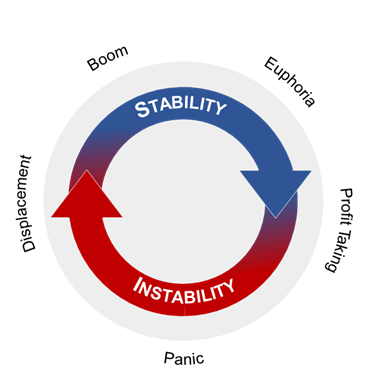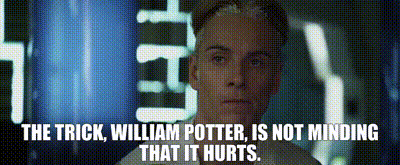In this crazy-fast world where new tech gadgets become old news in a matter of months and trends change faster than the weather, it’s easy to get caught up in all the change. But Morgan Housel’s book “Same as Ever” throws us a bit of a curveball. It says, “Hey, while everyone’s busy looking at what’s changing, let’s not forget about the stuff that doesn’t change.” And it turns out, that unchanging stuff? It’s pretty crucial.
Risk: The Sneaky Side of Life
First off, Housel chats about risk. Not the “Oh no, I forgot my umbrella, and it might rain” kind of risk, but the “Wow, I didn’t see that coming” kind. He’s got a point that the biggest risks are the ones we don’t even think about. It’s like playing a video game where the dangers aren’t the monsters you see but the trapdoors you don’t. Risk is what is left over after you’ve planned for everything. Not being able to see all the risks is a constant. Daniel Kahnemann says “what you don’t see might refute everything you believe in”.
Happiness: It’s All Relative
Then, there’s this zinger about happiness. It seems we’re all in this constant race not to be just happy, but to be happier than our next-door neighbor or that friend who posts picture-perfect vacations on Instagram. It’s not about having what we need; it’s about having more than someone else. Makes you think, right? Expectations are driven by envy not greed. The glorious lifestyles of the few drives the aspirations of the many. To be truly happy, we must never forget that our aspirations are driven by the aspirations of others. Budhism says that the root of all suffering is desire and the Buddha’s solution to this was to eliminate desire. But in a world where desire is the fuel that drives the economy, eliminating desire is not a practical solution. The solution then is to be aware of the source of our desires and try to bring contentment in our lives.
Stories: Our Personal Spin Doctors
We’re all storytellers in our own right, and the tales we tell ourselves can shape our beliefs, decisions, and what we see as possible. But here’s the kicker - don’t get so hooked on a story that you forget reality might throw you a plot twist. Sometimes the stories people tell themselves lead to faith, belief or rationality. It is hard to compute the results of these stories. Don’t be so confident on data that you leave no room for surprise.
Calm Before the Storm
Calm sows the seeds of crazy in life. This concept, deeply rooted in Hyman Minsky’s financial instability hypothesis, illustrates how periods of stability can quietly lay the groundwork for future upheaval. The more stable our economy appears, the more optimistic and risk-taking we become. This optimism often translates into increased debt, nudging us closer to potential instability. Imagine a perpetually rising stock market - the temptation to invest, to leverage every asset we have, becomes almost irresistible. Yet, this is where the seeds of future financial crises are sown, as soaring valuations eventually leave no room for growth, turning expectations on their head.

Housel urges us to recognise the cycle of ignoring good news until it becomes bad, then panicking, only to later normalise the bad as the new status quo. He argues that, that Covid-19 wrecked such havoc, was in part due to the years of great healthcare and relatively infection free years that preceded it. It’s a reminder of the unpredictability of life and the economy - shaped by incomplete information, uncertainty, randomness, and often, poor timing and incentives.
Fragility of the World
The world, according to Housel, is like a finely tuned watch that works beautifully until one tiny gear slips. It’s all about how delicate peace and stability are; one wrong move, and things can tumble. It takes everyone to make the right decision to keep peace but it only takes one bad decision from one party to make war. Yet, it’s also about the slow, steady progress we make amidst the chaos. Kinda hopeful, in a way. Slow progress amidst a drumbeat of bad news is the normal way of the world.
Keeping Optimistic, Within Reason
Housel is all for optimism but not the kind where you wear rose-colored glasses all the time. It’s about being hopeful, yet realistic, knowing that not everything is going to be a walk in the park. It’s knowing that often times the going will get tough and demand more out of you. Knowing this and preparing for it is the key to a good life.
The Art of Enduring
This was my favorite part of the book. There’s this golden nugget about enduring life’s hassles. Instead of looking for shortcuts, being ready to face problems head-on is a great way to live. Charlie Munger once said the best way to get something is to try and deserve it. You cannot have 0 tolerance for bullshit and still function in the world. Dealing with an acceptable level of hassle is important.

So, there you have it. “Same as Ever” is a reminder that amidst all the change, there are some solid truths to keep us grounded. It’s about seeing the full picture, embracing the constants, and maybe, just maybe, finding a steadier path through the chaos of life.
I run a startup called Harmonize. We are hiring and if you’re looking for an exciting startup journey, please write to jobs@harmonizehq.com. Apart from this blog, I tweet about startup life and practical wisdom in books.